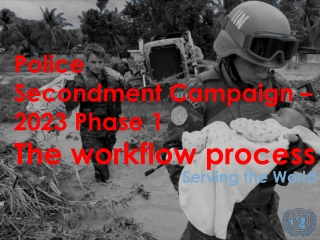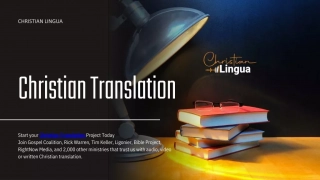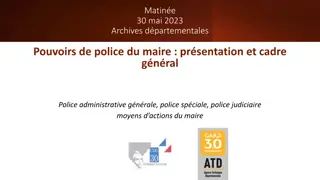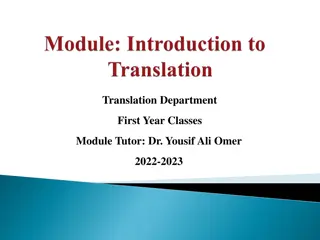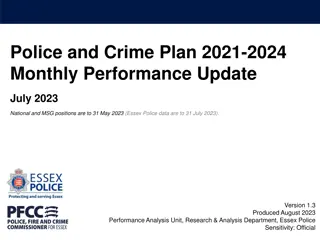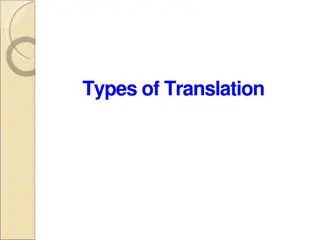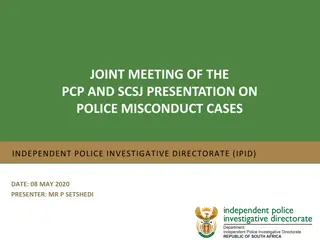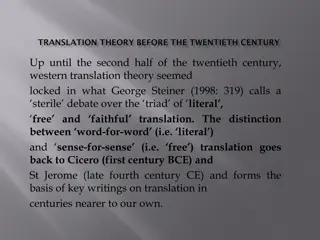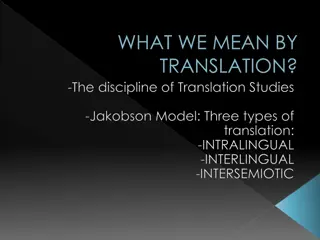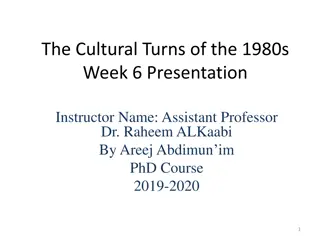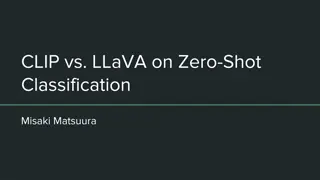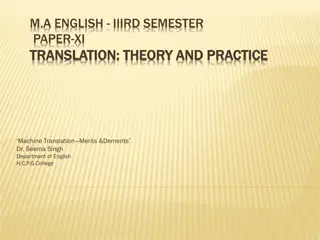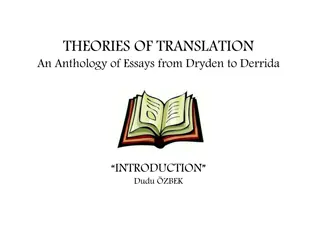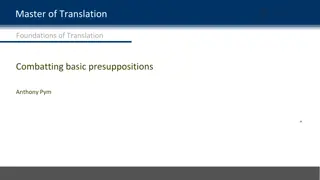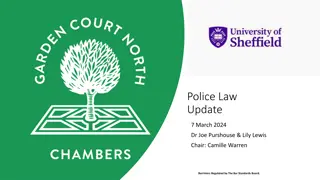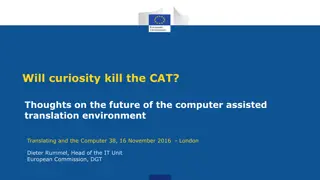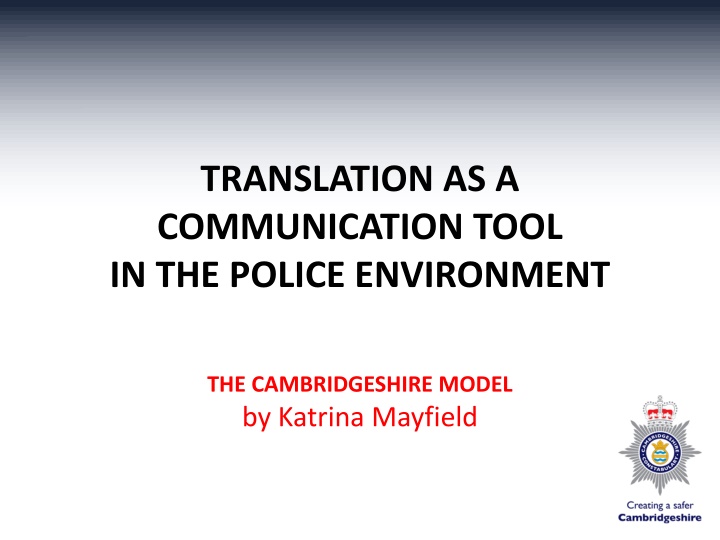
Translation as a Vital Communication Tool in Policing - The Cambridgeshire Model
Explore how translation plays a crucial role in the police environment, focusing on the Cambridgeshire Model. Delve into challenges, legal requirements, and the necessity of language services amidst a diverse population, shedding light on the importance of effective communication in law enforcement.
Download Presentation

Please find below an Image/Link to download the presentation.
The content on the website is provided AS IS for your information and personal use only. It may not be sold, licensed, or shared on other websites without obtaining consent from the author. If you encounter any issues during the download, it is possible that the publisher has removed the file from their server.
You are allowed to download the files provided on this website for personal or commercial use, subject to the condition that they are used lawfully. All files are the property of their respective owners.
The content on the website is provided AS IS for your information and personal use only. It may not be sold, licensed, or shared on other websites without obtaining consent from the author.
E N D
Presentation Transcript
TRANSLATION AS A COMMUNICATION TOOL IN THE POLICE ENVIRONMENT t THE CAMBRIDGESHIRE MODEL by Katrina Mayfield
LOST IN TRANSLATION Inspector Clouseau t
MIGRATION AND LANGUAGES People move across the globe 75 % of East Anglia newcomers in recent years came in fact to Cambridgeshire t Over 250 languages are spoken in the county 40 languages per year used in the language service of the constabulary
CAMBRIDGESHIRE CONSTABULARY 2000 employees and 1400 police officers 3700 crimes recorded per month: av. 30% detected; 75% Early Guilty Plea cases (dealt on the first hearing) t 300 vetted qualified freelance interpreters 50 Multilingual Support Officers 30% of suspects are foreign nationals 1 in 5 of suspects, victims and witnesses require an interpreter for interview
CHALLENGES The population is becoming more and more diverse the demand for translation is growing Increasing austerity - budget shrinks t Inherited lack of trust of policing within minority communities
LEGAL REQUIREMENTS ECHR protects the right of a suspect to be informed in the language they fully understand on the reason for the arrest and any charges t Directives EU Subsequent local legislation for the police PACE (Police and Criminal Evidence Act) known as Code of Practice Victims Code
Annex M of PACE For the purposes of Directive 2010/64/EU of the European Parliament and of the Council of 20 October 2010 and this Code, essential documents comprise records required to be made in accordance with this Code which are relevant to decisions to deprive a person of their liberty, to any charge and to any record considered necessary to enable a detainee to defend themselves in criminal proceedings and to safeguard the fairness of the proceedings. Passages of essential documents which are not relevant need not be translated. See Note M1 Table of essential documents (i) The grounds for the authorisations to keep the person I custody (a) Authorisation for detention police custody (b) Authorisation to extend detention police custody (c) A warrant of further detention Magistrates court (d) Court warrant (ii) Written notice showing particulars of the offence charge (charge sheet) t The custody officer may authorise an oral translation or oral summary of documents (i) to (ii) in the table (but not (iii)) to be provided (through an interpreter) instead of a written translation Subject to paragraphs 5 to 7 below, a suspect may waive their right to a written translation of the essential documents described in the table but only if they do so voluntarily after receiving legal advice or having full knowledge of the consequences and give their unconditional and fully informed consent in writing (see paragraph 9). https://www.gov.uk/government/uploads/system/uploads/attachment_data/file/311276/PaceCodeC2014.pdf
POLICE RESPONSE TO THE CHALLENGES Improved efficiency The Cambridgeshire model Building trust and confidence through the proactive t recruitment of volunteers with language skills Improved service to the customers especially victims Pioneering the use of modern technologies
CAMBRIDGESHIRE MODEL Interpreting and Translation Services Manager Standard Operating Procedures (SOP) t Training for police officers Serious performance management regime CPD programme for interpreters/translators
POLICE NEEDS IN TRANSLATION Witness Statements- MG11 VPS (Victim Personal Statement) Charge sheet MG4 t Investigative exhibits: documents, text messages, notes etc. Forms Appeals Marketing materials
LANGUAGE AND TERMINOLOGY Translators language: Technical/Non technical t Police officers language: Evidential/Non evidential International Letter of Request (ILOR) usually non-evidential but always highly technical
CRITERIA FOR TRANSLATORS Availability Reliability t Security clearance Qualification?
POLICE TRANSLATORS Community translators Community volunteers t Public Service Interpreters Google translate? Register of Legal Translators?
Questions? t katrina.mayfield@cambs.pnn.police.uk Mob +44 7525988995

